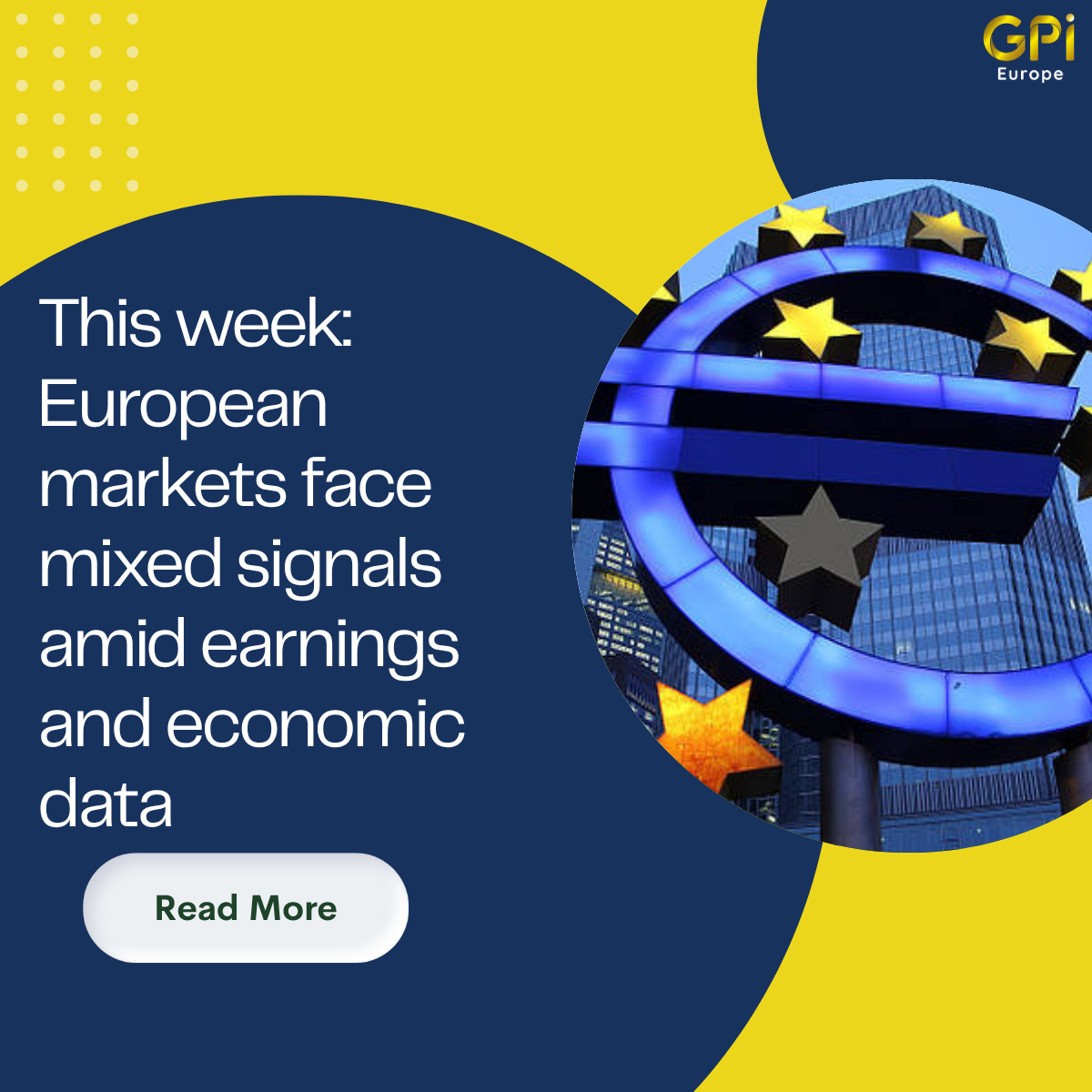This week: European markets face mixed signals amid earnings and economic data
This week, European stock markets navigated a landscape of mixed corporate earnings and cautious economic signals, reflecting a broader sense of uncertainty among investors.
The continent’s major indices saw varied performances as investors digested earnings reports from key companies alongside important macroeconomic data. While some sectors showed resilience, others faced pressure from global trade tensions and supply chain disruptions.
One key highlight was the impact of U.S. corporate earnings on European markets. The tech giants like Microsoft, Apple, Amazon, and Meta, whose results were eagerly anticipated worldwide, delivered mixed outcomes. This, combined with ongoing negotiations between the U.S. and China to ease trade tensions, kept markets on edge.
In Europe, the focus remained on domestic economic indicators. July’s consumer confidence showed slight improvement in several Eurozone countries, signaling cautious optimism among households despite inflation concerns. However, the European Central Bank (ECB) continues to tread carefully. Recent statements from ECB officials emphasized a patient approach to interest rates, balancing inflation control with growth support.
Meanwhile, energy markets added volatility as natural gas prices fluctuated in response to supply concerns and geopolitical developments. European countries, heavily reliant on energy imports, are closely monitoring these shifts, which directly affect industrial costs and consumer prices.
The banking sector in Europe also grabbed attention this week, with several banks reporting solid earnings but warning of potential headwinds due to rising loan defaults and slower economic growth. Investors are particularly watching for signs of stress in credit markets amid the tightening monetary environment.
Amid all this, ESG (Environmental, Social, and Governance) investing continues to gain momentum in Europe. Sustainable finance initiatives and stricter regulatory frameworks are encouraging investors to incorporate ESG factors into their portfolios, aligning with the EU’s broader green transition goals.
Looking ahead, European investors remain cautious but hopeful. The combination of global trade developments, ECB policy signals, and corporate earnings will shape the trajectory of markets in the coming weeks. As always, diversification and risk management are key strategies for navigating these uncertain times.





